Turn any article into a podcast. Upgrade now to start listening.
Premium Members can share articles with friends & family to bypass the paywall.
Editor’s Note, October 6, 2025: We have been experiencing technical difficulties with our email service provider this morning, and are working to resolve the issues as quickly as possible. We apologize for the delay in this newsletter hitting your inbox.
Happy Monday! Chelsea Clinton launched a new podcast, That Can’t Be True, last week, making her an early adopter of this exciting new medium. She joins trailblazers like Bill Simmons, Joe Rogan, and every single person you went to college with.
Quick Hits: Today’s Top Stories
- After the Senate failed on Friday to pass legislation to fund the federal government, House Minority Leader Hakeem Jeffries announced in a letter on Saturday that the House Democratic caucus plans to hold a virtual meeting on Monday, as the chamber remains out of session and the federal government shutdown lags on. Discussing ongoing negotiations on Capitol Hill over a prospective funding deal, White House economic adviser Kevin Hassett told CNN on Sunday that congressional Democrats may “be reasonable” on Monday, adding, “And if they are, then I think there’s no reason for those layoffs,” referring to proposed mass cuts to federal employment. However, he continued, both President Donald Trump and White House Office of Management and Budget Director Russell Vought are “lining things up and getting ready to act if they have to, but hoping that they don’t.” When asked about Vought last week, Republican Senate Majority Leader John Thune said, “We don’t control what he’s going to do.” Due to the government shutdown, the Bureau of Labor Statistics did not release its scheduled jobs report on Friday.
- Russia launched a massive aerial attack overnight on Sunday across nine separate regions of Ukraine, killing five civilians—including a 16-year-old girl—and injuring at least 10 others, according to Ukrainian officials. The barrage included about 500 military drones and more than 50 missiles, according to Ukrainian President Volodymyr Zelensky, and also targeted Ukrainian energy infrastructure. Strikes in and around Lviv, in western Ukraine, prompted Poland to scramble fighter jets in response.
- The terror group Hamas publicly agreed on Friday to Trump’s proposed ceasefire and complete hostage release plan, with certain conditions, as the president told reporters on Sunday that he expects the plan to be completed successfully “in a couple of days.” Still, in an interview that same day with NBC News’ Meet the Press, Secretary of State Marco Rubio said, “There’s some work that remains to be done” to finish the deal, and mediators from Israel and Hamas plan to meet in Egypt on Monday to hash out the final details. Trump requested on Friday that Israeli Prime Minister Benjamin Netanyahu halt the Israel Defense Forces (IDF)’s aerial attacks on Gaza while final terms are being negotiated, and while the IDF scaled back the magnitude of such attacks, it did not entirely pause its military operations in the region. Citing an “unnamed official with knowledge of the call,” Axios reported yesterday that Trump told Netanyahu over the phone on Friday that he needed to take the win, adding, “I don’t know why you’re always so f—ing negative.” However, in a Sunday text message to CNN anchor Jake Tapper, who asked Trump what would happen if Hamas attempted to remain in power in Gaza, Trump replied, “Complete Obliteration!”
- A federal district judge issued a temporary restraining order on Saturday, putting a pause on Trump’s plan to deploy 200 California National Guard members to Portland, Oregon, in response to a lawsuit brought by both the state and city government against the White House. Judge Karin Immergut broadened that restraining order on Sunday—to cover “the relocation, federalization or deployment of members of the National Guard of any state or the District of Columbia in the state of Oregon”—after the president ordered 400 members of the Texas National Guard to “federal protection missions” in Portland and Chicago, a move that Immergut, a Trump appointee, said was “in direct contravention” of her previous ruling. The order—which is intended to temporarily settle the dispute while the case’s merits are heard in court—expires on October 18, Immergut may extend it. The administration has appealed the ruling. “President Trump exercised his lawful authority to protect federal assets and personnel in Portland following violent riots and attacks on law enforcement,” White House spokeswoman Abigail Jackson said in response to the ruling. “We expect to be vindicated by a higher court.”
- Defense Secretary Pete Hegseth announced on X Friday that the U.S. military shot and destroyed a fourth suspected gang-affiliated boat trafficking illegal narcotics to the U.S. from off the Venezuelan coast, adding that the strike killed all four men aboard. Hegseth said that the suspects were linked with one of the Designated Terrorist Organizations, without specifying which cartel, but claimed that U.S. intelligence confirmed “without a doubt” that “this vessel was trafficking narcotics, the people onboard were narco-terrorists, and they were operating on a known narco-trafficking transit route.” The Trump administration had informed Congress days earlier that the president has decided the U.S. is in a formal “armed conflict” with drug cartels.
- A federal district judge on Friday sentenced the would-be assassin of Supreme Court Justice Brett Kavanaugh to more than eight years in jail, followed by supervised release for life. Sophie Roske—a biological male whose lawyers last month claimed was a transgender woman—pleaded guilty in April and, per court documents, admitted to traveling from California with the intent to kill three justices. In June 2022, Roske—with a firearm, knife, and zip ties in hand—hailed a taxi to Kavanaugh’s neighborhood and paced outside his home, before ultimately informing law enforcement on the phone about having suicidal and homicidal thoughts. The sentence came in well below federal guidelines—and just one month more than Roske’s defense attorneys had proposed—with District Court Judge Deborah Boardman ruling that she made that decision because Roske decided to “come clean,” adding, “Though she got far too close to executing her plans, the fact remains she abandoned them.” Attorney General Pam Bondi said the Justice Department would appeal, describing the prescribed 97-month imprisonment as a “woefully insufficient sentence imposed by the district court, which does not reflect the horrific facts of this case.”
- French Prime Minister Sébastien Lecornu resigned on Monday, just hours after naming his cabinet on Sunday and less than a month after President Emmanuel Macron appointed him following the September collapse of François Bayrou’s government via no-confidence vote. Lecornu’s ministerial selections drew criticism across the political spectrum, particularly his decision to bring back former finance minister Bruno Le Maire to lead the defense ministry. It’s unclear whom Macron will appoint next, with the far-right National Rally calling for dissolution of the National Assembly and new elections.
- Japan’s ruling Liberal Democratic Party elected former Economic Security Minister Sanae Takaichi as its new leader Saturday, making her likely to become the country’s first female prime minister. A parliamentary vote to formally select the next prime minister is expected on October 15. Japan’s Nikkei 225 index surged 4.75 percent to a record high on Monday on expectations that Takaichi, a proponent of expansionary fiscal policy, will maintain monetary easing.
- Czech voters cast their ballots in parliamentary elections over the weekend, with the populist, right-wing ANO party winning a plurality of seats in the country’s lower legislative chamber. While the party won 80 seats—eight more than it won four years ago—it was still 20 seats shy of clinching a parliamentary majority. Still, the results could pave the way for billionaire businessman Andrej Babiš to return as prime minister, if he can assemble a majority coalition in the 200-member chamber.
- Syria also held elections over the weekend to fill its first parliament since the removal of dictator Bashar al-Assad and the fall of his regime in December 2024, with two-thirds of the new legislative body’s 210 seats being regional representatives elected directly by constituents. Syria’s new leader, President Ahmed al-Sharaa, will later choose the remaining third, at which point parliament could begin holding sessions.
- Irakli Kobakhidze, the prime minister of the Eastern European nation of Georgia, on Saturday announced a government crackdown on anti-regime protests and dissent, declaring that “no one will escape responsibility,” according to Georgian-based independent media outlets. Five protesters, including two affiliated with a political opposition party, were arrested during pro-democracy demonstrations that same day as crowds clashed with police while some activists attempted to enter the presidential palace. The announcement followed municipal elections held across the country, in which candidates affiliated with Kobakhidze’s Georgian Dream party won all 64 races.
- Eight members of the Organization of the Petroleum Exporting Countries and its partners, known collectively as OPEC+, announced on Sunday that they plan to increase oil production by 137,000 barrels per day. The move will be fully implemented by November, according to the OPEC statement, which added that the decision was made, in part, to help member countries “accelerate their compensation.” To read more about the current oil market, read the August 7 TMD.
- The rapper Sean Combs, also known as “P. Diddy,” was sentenced to 50 months of imprisonment on Friday for two prostitution-related charges that a jury convicted him of in July. Federal District Judge Arun Subramanian delivered the sentence, which he said was intended, in part, “to send a message to abusers and victims alike that exploitation and violence against women is met with real accountability.” Last week, Combs wrote in a letter to the judge, requesting a more lenient sentence, that “I have no one to blame for my current reality and situation but myself,” and asked for “another chance.”
- The Nobel Assembly at the Karolinska Institutet awarded the 2025 Nobel Prize in Physiology or Medicine on Monday to Mary E. Brunkow, Fred Ramsdell, and Shimon Sakaguchi for their discoveries concerning peripheral immune tolerance. The trio identified regulatory T cells—immune system “security guards” that prevent the body from attacking its own tissues—through research conducted between 1995 and 2003. Sakaguchi, a distinguished professor at Osaka University, discovered the new class of T cells in 1995, while Brunkow and Ramsdell later explained the genetic mechanism behind their function. The discoveries have spurred development of new treatments for cancer and autoimmune diseases, the committee said.
The Damascus Conversion
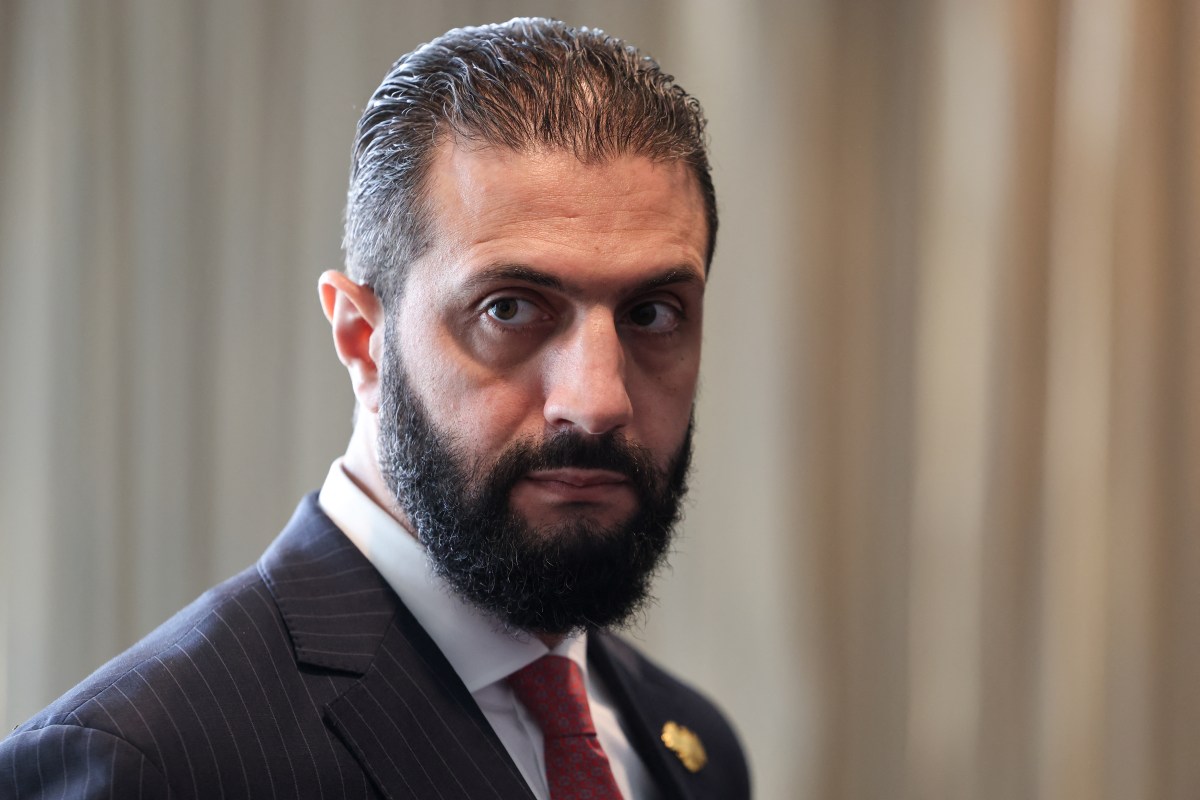
Gen. David Petraeus, former commander of U.S. forces during the 2007 “surge” in Iraq, was facing one of his old opponents: Ahmed Hussein al-Sharaa. A former Al-Qaeda associate, al-Sharaa’s last job was as the leader of Hay’at Tahrir al-Sham, a Syrian Islamist group, and he’d spent years in U.S. detention in Iraq.
But instead of encountering each other on a desert battlefield or an urban insurgency in Iraq, Petraeus and al-Sharaa were at the Concordia Annual Summit in New York City, held alongside the U.N. General Assembly, clad in business suits, not fatigues.
“The fact is that we were on different sides,” the last time they met, Petraeus said. “Here you are now as the president of Syria.”
“Someone who went through war is someone who knows most the importance of peace,” al-Sharaa replied. “We cannot judge the past based on the rules of today, and we cannot judge today based on the rules of the past.”
Syria, shattered by more than a decade of civil war, tried to begin moving on from its bloody past on Sunday, as it held elections for a 210-seat parliament that will be tasked with writing a new constitution. It’s the first election since the fall of the murderous dictator Bashar al-Assad in December 2024, and one of the first major accomplishments of al-Sharaa, who has promised to deliver the country from its “wretched past.”
As a non-paying reader, you are receiving a truncated version of The Morning Dispatch. You can read our full item in the members-only version of TMD.
Elections went smoothly, with final results expected to be announced later today. However, they also highlighted that al-Sharaa’s new government still faces a challenging road ahead, with the process marred by concerns about top-down decision-making and with elections postponed indefinitely in some parts of the country.
Al-Sharaa’s visit to the U.N. General Assembly in September, the first by a Syrian president in nearly 60 years, is a sign that the rest of the world is eager to welcome his country back from the isolation of the Assad years. But even if al-Sharaa’s transformation from jihadist to secular statesman is sincere, his commitment to transparent, accountable government is more ambiguous. Along with a nonbinding, one-day “National Dialogue” in February, a seven-member committee selected by al-Sharaa set the rules for Sunday’s election.
However, few Syrians actually voted. A Supreme Committee (again handpicked by al-Sharaa) appointed subcommittees, which then selected approximately 6,000 regional electors across the country to vote in about 120 members of the 210-seat People’s Assembly. al-Sharaa will appoint an additional 70 members, and roughly 20 additional seats will remain empty for now, with the government indefinitely postponing voting in northeastern Syrian areas controlled by the Kurdish-led Syrian Democratic Forces (SDF) and a southern province controlled by members of the Druze minority.
Critics charge that the entire electoral process was opaque, with limited popular participation and excessive influence from the president. There are also no quotas to ensure the parliamentary representation of women and minorities, although draft electoral college rules required that 20 percent of electors be women. “This is the biggest concern with the new government,” Nanar Hawach, the senior analyst for Syria at the International Crisis Group, told TMD. “It’s how centralized power is within a handful of people.”
In his first months in power, al-Sharaa seems to be running much of his government through a small, tight-knit circle of advisers. Foreign businessmen claim that his brother, Hazem, who does not currently hold a formal position, is the primary decision-maker for government contracts, and al-Sharaa’s powerful foreign minister, Asaad Hassan al-Shaibani, has moved into Assad’s former residence in Damascus. Al-Sharaa is also the chair of Syria’s new sovereign wealth fund and has the power to select its board, with little legal oversight from the Finance Ministry. Several of its initial investment deals have been with what some experts describe as obvious shell companies.
Defenders of the new government pointed out that a fully modern election is simply untenable in Syria as it stands, as millions of Syrians have been internally or externally displaced, and basic facts like addresses and population counts remain murky. The new assembly will also be tasked with making plans for popular elections during its 30-month term.
And then there are the areas where the government indefinitely postponed elections, a result of sectarian tensions that have become worryingly heightened in recent years. Syria has always been a diverse state, composed not only of Sunni Arabs (the majority) but also significant populations of Christians, Alawites (a small Muslim sect that the Assad family hailed from), Kurds, and Druze. The new government has struggled to incorporate these groups, leading to violent incidents, like the fighting around the city of Sweida earlier this summer.
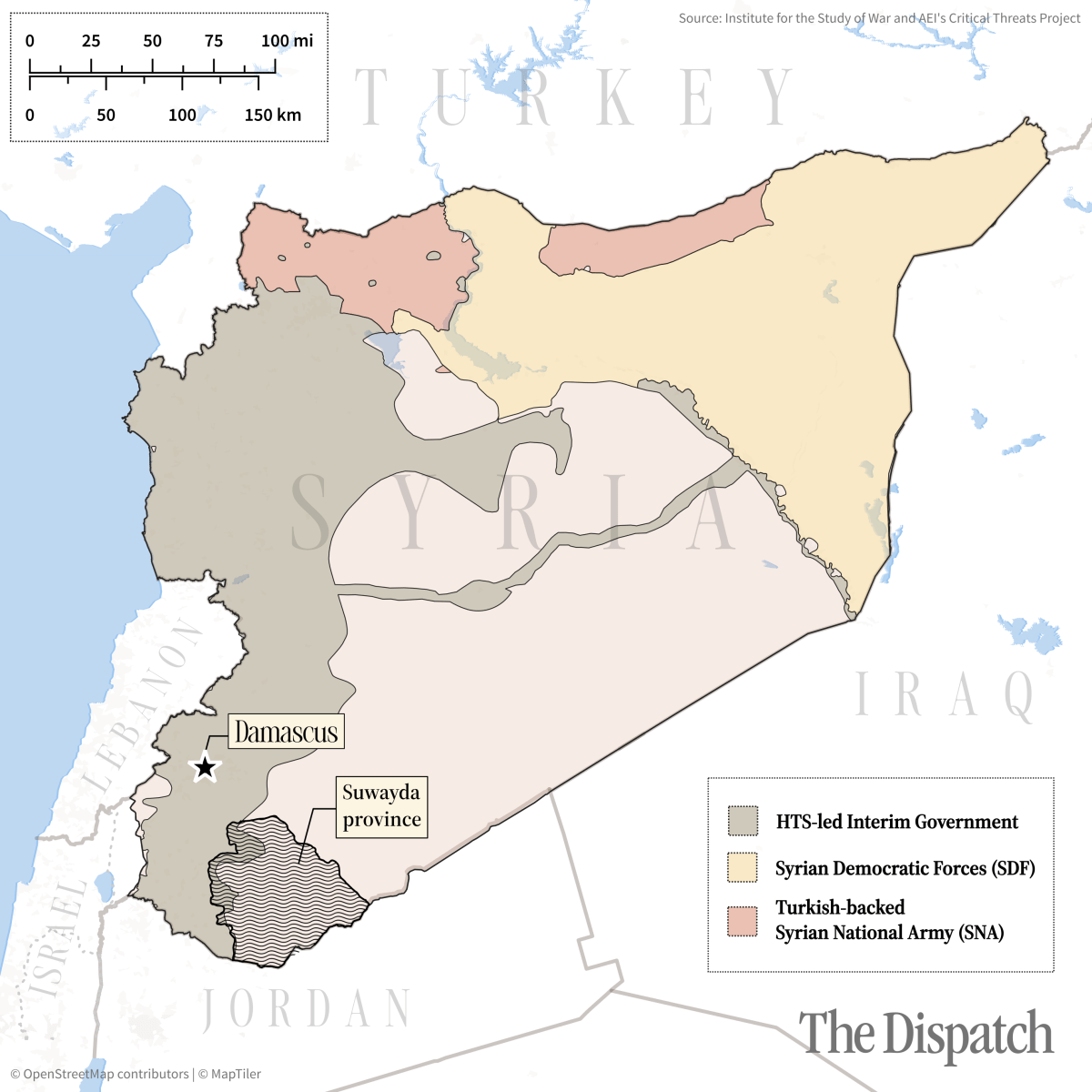
The incident was an example of how severe the divisions between the central government and regional minorities have become. Located in the south of Syria, near the border with Israel, Sweida’s population is majority Druze. Members of an insular, syncretic religion that combines aspects of Islam, Christianity, and various Middle Eastern mystical traditions, the Druze made up around three percent of Syria’s pre-war population.
In July, armed Bedouins (desert-dwelling tribal groups) kidnapped a Druze merchant on the highway between Sweida and Damascus, beating him and stealing his goods. In retaliation, the merchant’s relatives kidnapped Bedouin tribal members in Sweida, leading to another round of counter-kidnapping.
The violence quickly spun out of control. Militias from both groups mobilized, with Bedouins entering the province from across the country, passing through Sunni-run government checkpoints to do so. Al-Sharaa sent government forces to restore order, but Druze militias, convinced that the government was allied with the Bedouins, fought back. Syrian vehicles were also targeted by Israeli jets, intervening on behalf of the Druze. Israel also attacked the Ministry of Defense in Damascus, striking near the presidential palace. By the time the U.S. helped to broker a ceasefire on July 19, around 1,000 civilians and militants had been killed. Israel claimed that it intervened to protect the Druze, as a large number of Druze live in Israel and serve in the Israel Defense Forces (IDF). Israel has also sought to expand its zone of influence in Syria in the past year, creating a buffer between its border and Syria’s to forestall cross-border attacks.
July’s fighting, however, wasn’t the only outbreak of bloody sectarianism under the new Syrian regime. Multiple ambushes and massacres, purportedly by government-aligned forces, killed dozens of Druze last spring and prompted limited Israeli strikes. In March, three weeks of fighting and massacres in Alawite-majority areas of western Syria—between former members of Assad’s forces and armed groups aligned with the new government—killed as many as 2,000 people, according to civil rights observers, and caused thousands of Christians and Alawites to flee into Lebanon.
There hasn’t been as much violence between the SDF and the new government, but the signs so far are not encouraging. While dominated by Kurdish armed groups (including the all-female Women’s Protection Units), the SDF has included a host of other groups that fought against Assad and the Islamic State, including the Syriac Military Council (made up of Christian Assyrians), various Arab militias, and at one point, the International Freedom Battalion, made up of leftist foreign fighters.
With a commitment to secularism and local democracy, the SDF has been remarkably successful at working across Syria’s sectarian divisions. “Northeastern Syria is the most integrated region of Syria,” Michael Rubin, a senior fellow at the American Enterprise Institute, told TMD. “It should be the model for the rest of the country.”
Following its seizure of Damascus, al-Sharaa’s government has sought to incorporate the SDF’s territory. However, amid skirmishes between government forces and SDF groups this summer, negotiations to integrate SDF forces into the new Syrian armed forces have largely stalled. SDF-aligned groups, especially Kurdish forces, are deeply wary of Turkey’s support for al-Sharaa, as Turkish President Recep Tayyip Erdoğan has sought to prevent the growth of Kurdish power on his country’s border and stave off new influxes of refugees.
On Wednesday, Erdoğan hinted that Turkey might intervene if negotiations fail. “We have engaged all channels of diplomacy both to preserve Syria’s territorial integrity and prevent a terrorist structure from forming across our borders,” he told the Turkish parliament last week. “Turkey will not allow a deja vu to take place in Syria.” Turkish troops have fought with the SDF in years past, carving out a buffer zone in parts of northern Syria.
But despite Turkish pressure, the Autonomous Administration of North and East Syria (AANES)—the SDF’s civilian authority—has not yet recognized the legitimacy of Sunday’s elections, calling them “an attempt to reproduce the exclusionary policies that have governed Syria for decades” and urging other countries not to recognize them. More concerningly, regional newspapers have reported in recent days that the SDF is arresting men for allegedly dodging conscription in areas it controls, a clear signal of independence from the central government.
The SDF has denied the accusations, stating that its forces were conducting routine security operations. On Sunday, it claimed that seven of its members were wounded in drone attacks conducted by “militants of the Damascus government.” Rubin told TMD that, given its distrust of al-Sharaa’s government and the challenges facing Damascus, the SDF does not appear poised to relinquish much of its autonomy anytime soon. “For all practical purposes, the Kurds will try to outlast al-Sharaa,” he said.
But on Sunday at least, al-Sharaa attempted to project optimism that the elections represented a major step toward a modern Syrian state—one that included all the country’s inhabitants. “Building Syria is a collective mission, and all Syrians must contribute to it,” he said. However, it remains to be seen whether the former militant can accomplish that task through persuasion rather than force.
Today’s Must-Read
Our civil rights laws, codified primarily in the Civil Rights Act of 1964, have always been in tension with the Constitution. That does not mean they are categorically unconstitutional. But civil rights law’s demands do test the First Amendment’s boundaries somewhat regularly. Imagine a professor repeatedly using racial slurs in class. Does that constitute de facto discrimination against minorities? Perhaps it depends on the context. But no matter where it lands, a court adjudicating a civil rights complaint will have to decide where freedom ends and a proscribed harm begins. And courts have done so for decades, developing a web of doctrines to navigate these thorny issues.
Toeing the Company Line
How to Stop Teaching Our Children to Hate
Plus: The struggle and survival of Jewish life in Ukraine.
Fun Socks
A government of Very Online adolescents.
Hoxes and Fedgehogs
On our political parties and their identity crises.
Transgender Issues Continue to Vex Democrats
Gubernatorial candidates in New Jersey and Virginia have been evasive on the trail.
The Nazi Scholar Inspiring China’s Intelligentsia
How Carl Schmitt shaped the CCP’s anti-liberal global vision.
The Arsonist and Firefighter
How to understand the role Qatar plays in Middle Eastern politics.
The Struggle and Survival of Jewish Life in Ukraine
Many Jews have fled war-torn Ukraine, but some places see spiritual revival.
One Bullet After Another
In Paul Thomas Anderson’s new movie, you’d better hold on for dear life.
Do You Belong to a Story?
Wendell Berry’s latest novel wrestles with what rootlessness does to our souls.
We’re Thinking About Mercy All Wrong
A mercy that allows killing is a deformed version of the virtue.
When Your Daughter Goes Off the Deep End
Fredrik deBoer’s first novel isn’t easy to read. But it’s important.
Abundance Democrats Are Turning Right | Interview: Philip Rossetti
What will make America more affordable?
Worth Your Time
- Last week, The Telegraph newspaper published two great pieces of reporting about foreign entanglement in British politics that are worth highlighting. On Thursday, David Blair wrote a piece detailing Nigel Farage’s repeated susceptibility to Kremlin propaganda, right as a former political ally pleaded guilty in court for taking bribes to help Russia. As Blair writes of the potential future prime minister, “The fact that Farage could hold such thoughts in his head raises a vital question: is there anything he would not believe if the Kremlin claimed it to be true?” Meanwhile, on Friday, Tony Diver reported that the current Labour government tanked a case against two alleged spies, apparently out of political convenience. Two Brits were accused of passing information about the government’s foreign policy to a senior member of the Chinese Communist Party, but the Crown Prosecution Service dropped the case after the government withdrew from contributing further to the prosecution, as they were “no longer willing to describe China as an enemy in court.”
Presented Without Comment
National Review: Dem AG Nominee Jay Jones Fantasized About Shooting Former Virginia GOP Speaker: ‘He Receives Both Bullets’
“If those guys die before me,” Jones wrote, referencing the Republican colleagues who were publicly honoring the deceased Johnson’s memory, “I will go to their funerals to piss on their graves” to “send them out awash in something.”
Jones then suggested that, presented with a hypothetical situation in which he had only two bullets and was faced with the choice of murdering then-Speaker of the House Todd Gilbert or two dictators, he’d shoot Gilbert “every time,” prompting pushback from his former colleague [Republican House Delegate Carrie Coyner]:
Jones: Three people, two bulletsGilbert, hitler, and pol pot
Gilbert gets two bullets to the head
Spoiler: put Gilbert in the crew with the two worst people you know and he receives both bullets every time
Coyner: JayPlease stop
Jones: LolOk, ok
Coyner: It really bothers me when you talk about hurting people or wishing death on themIt isn’t ok
No matter who they are
Also Presented Without Comment
Axios: Texas Megachurch Pastor Pleads Guilty to Child Sexual Abuse Charges
Texas megachurch founder Robert Preston Morris was sentenced after pleading guilty to child sexual abuse charges on Thursday, the Oklahoma Attorney General’s Office announced. …
Morris founded the Gateway Church that now has some 100,000 attendees in 2000. He went on to serve on President Trump’s evangelical advisory board during the Republican leader's first term and hosted Trump at Gateway Church in 2020.
Behind the Scenes
Editor’s Note: We’re excited to bring a new feature to TMD, “Behind the Scenes,” where we answer reader questions about how we choose to cover our topics, why something wasn’t (or was!) included, and anything else you’d like to know about TMD’s editorial choices.
Dispatch members can leave submissions in the comments, or email us at tmd.questions@thedispatch.com.
Today’s “Behind the Scenes” comes in response to one of the topics that TMD receives the most questions about: the civilian death count in Gaza.
Why does TMD not quote specific numbers for Palestinian civilian deaths, like so many other publications? Doesn’t this skew your coverage in favor of Israel, as you do report on the number of IDF soldiers killed?
TMD Editor Ross Anderson: This is something we think about a lot, and our coverage here notably distinguishes The Dispatch from other publications. Many of the sources we cite from, such as Associated Press or Reuters, will provide regularly updated death figures about the civilian death count in Gaza, but we don’t. Why? Because these numbers come from Gaza’s Ministry of Health, which is run by Hamas, and even setting the questions of motive aside, the data is gathered through very unreliable means.
In previous wars, the Ministry of Health’s top-line death count figures have broadly matched the counts later released by Israel and the United Nations, but this war is rather different, and its claims have been suspect from the beginning. Some research published in May suggested that the Health Ministry death count may notably undercount the real figure—but, again, this analysis is itself based on poor data. It’s also worth flagging that neither side of the conflict is actively tracking the civilian death count. Israel counts the number of enemy combatants killed, and the Gaza Health Ministry counts the total Gazan death count, not distinguishing between combatants and non-combatants.
The most irresponsible use of these figures, though, is often found in reporting on the death count of a specific attack or incident in Gaza. You simply cannot accurately count the bodies until the rubble is cleared; yet the Health Ministry will often provide an overly specific casualty figure long before it can be certain it’s true.
The flip side of this, though, is that no credible source thinks that the civilian death count in Gaza is not in the tens of thousands, and not acknowledging that also feels like we are misleading or misinforming our readers. We’ve tried to navigate this by providing as much information as we can, while still being cautious. In items on Gaza—like Thursday’s TMD—we write about the deaths in a necessarily broad way:
“Gaza—which has been largely leveled by fighting that has seen tens of thousands of Palestinians killed and displaced”—
Conversely, when writing Quick Hits—such as citing the IDF death count on September 23—we write:
The Palestinian civilian death count for the operation is unverifiable.
Though some readers thought we ought to have said more than this, this felt like a way to signal that we care about this data, while also being unwilling to repeat unreliable figures. When the war ends, TMD will run a piece that dives into the civilian death toll of this war—breaking down roughly how many civilians were killed, putting that number into context, and explaining why it has been so hard to provide reliable numbers during the war. In the meantime, we will remain cautious.
To read TMD editor Ross Anderson’s response to the question—or to submit one of your own—become a member today.
Let Us Know
Have any thoughts or questions about today’s newsletter? Drop us a note in the comments or by emailing us at tmd.questions@thedispatch.com. We read every submission, and your message could be featured in tomorrow’s “Behind the Scenes” segment.
Have any thoughts or questions about today’s newsletter? Become a member to unlock commenting privileges and access to a members-only email address. We read every submission, and answer questions in the following edition of TMD.






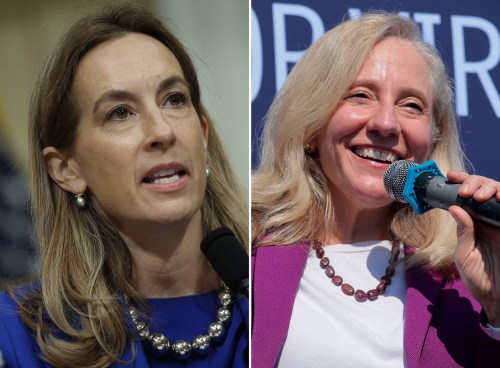
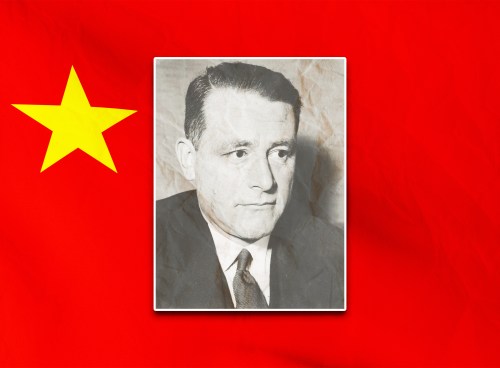











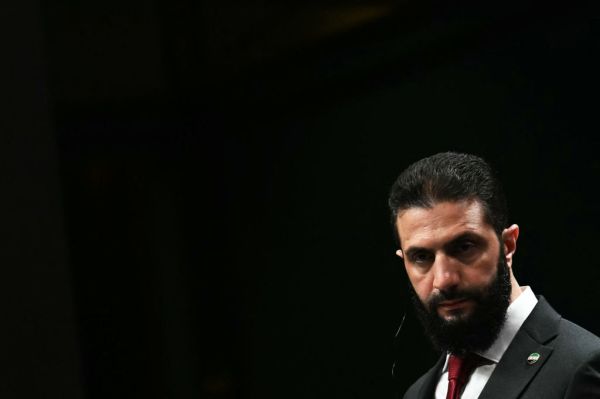
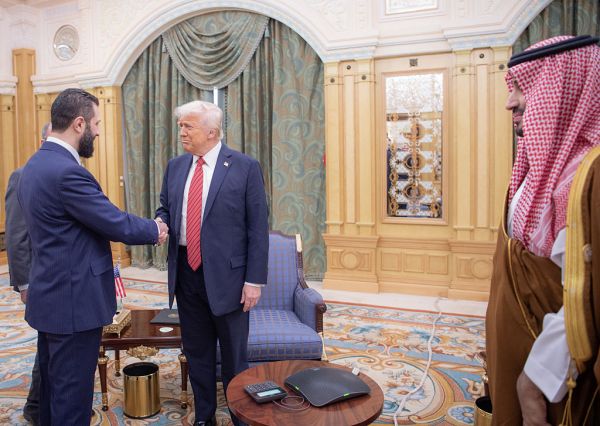


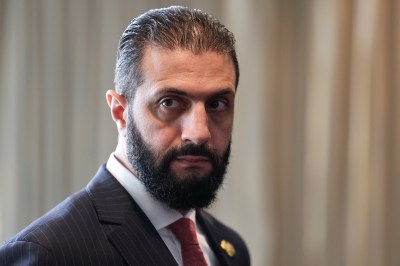
Please note that we at The Dispatch hold ourselves, our work, and our commenters to a higher standard than other places on the internet. We welcome comments that foster genuine debate or discussion—including comments critical of us or our work—but responses that include ad hominem attacks on fellow Dispatch members or are intended to stoke fear and anger may be moderated.
With your membership, you only have the ability to comment on The Morning Dispatch articles. Consider upgrading to join the conversation everywhere.